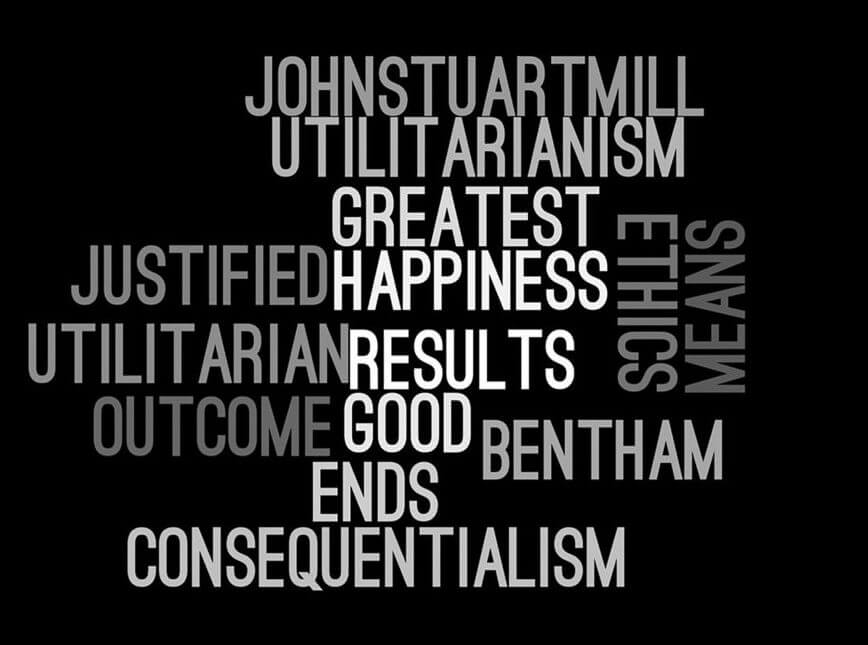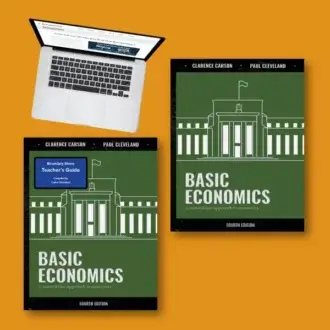Updated October 10, 2023
From a Homeschool Mom’s Heart
There is an unrelenting encroachment of a secular ideology into educational curriculum and the classroom that will not allow for the possibility that there could have been an intelligent creator. This was a huge factor in our decision to homeschool our kids through high school. Just because something comes from a secular perspective does not mean it is false. But increasingly, what is taught in many schools allows no room for, and regularly belittles, any belief in God and His revelation to us in His Word. We wanted to do all we could to prepare our kids to deal with this before they went out on their own.
The Worldview Undermining Economics Curriculum

Sadly, most homeschoolers are not familiar with the atheistic philosophical underpinnings that have taken over the study of history, government, and economics. These assumptions are now part of almost any high school course of study—even homeschool curricula. This began when atheist philosophers asserted that nature is all there is and every human being is merely another animal. Since they removed God from their thinking, they argued for legal and moral positivism, which says that what is right is whatever we as a culture, or a government, declares is right without regard to any type of higher moral law. The individual person, it is argued, only has rights and a law to live by because a government has put those laws in place. There was no creator and, thus, there are no God-given rights. Since there was no intelligent designer, there is no higher, natural law intentionally built into the system that we should seek to adhere to.
In the sphere of political economy—where the study of government and economics intersect, it was the English philosopher Jeremey Bentham who introduced this concept into the field of study. Simply stated, the underlying moral philosophy of Bentham and his followers is that public policy should be determined solely on a cost/benefit analysis without any consideration of God-given natural rights or His moral law. Whatever makes the greatest number of people happy is what is right to do. As such, the rights of the individual could be trampled on if it is thought to promote the “common good.” Thus, if the benefits of taking something from one person to give it to someone else outweigh the costs imposed, then it should be done. This idea, which became known as utilitarianism, made its way into mainstream economics in the early 20th century via mathematical modeling, which was often based on some very unrealistic assumptions.
Unwittingly Teaching Practical Atheism, Even in Homeschool Economics
Most people are unaware of the underlying atheism that motivated these men. Sadly, much of what is taught to our kids, even in many popular Christian curricula, is a sort of practical atheism that mimics what is taught in Common Core and covered in the AP Micro- and Macroeconomics tests.
Since I have never had an economics class, after marrying an economics professor, who also has a love for history, I have been on a long slow journey of learning economics in that 24/7 classroom that is the Cleveland home. When I would hear Paul talk about political economy, utilitarianism, and moral positivism, I have to admit my eyes would glaze over. But he convinced me we should use Clarence Carson’s Basic Economics textbook when teaching our two in high school. Dr. Carson was an historian and a mentor to my husband. As of the third edition, Paul became a co-author of the text. Through Paul’s encouraging, I ended up teaching economics and government to more than 100 students over four years at our homeschool co-op here in Birmingham, Alabama. I fell in love with the two subjects and the approach of this curriculum. Dr. Carson helped me grasp the importance of these concepts that today’s students need now more than ever.
Using Dr. Carson’s books with these students, I saw several enhancements that could make his books easier for home schoolers to use. That has put us on a path of revising the entire set of his high school texts. The fourth edition of Basic Economics: A Natural Law Approach to Economics was published in May 2018. It contains several new features that will appeal to Christian homeschoolers and private schools. We have developed an accompanying one semester online course to keep students on track with daily assignments, lots of short videos, chapter quizzes, and four tests. There is also a budget project that walks a student through developing a monthly household budget. It is our intention to re-work the entire set of textbooks with similar changes.
We ask you to take a look and decide for yourself. A PDF of chapter one is available for you to examine. We begin at the beginning: Creation and the Dominion Mandate. This book spends the first five chapters (one fourth of the accompanying online course) building the natural law foundation that is necessary for understanding the limitations of economics as taught in most high schools and colleges. Trying to make policy choices apart from these foundations leads to disastrous consequences. We hope to help you raise up a generation who will not be intimidated by political economy discussions.
A Natural Law Perspective—What Makes Boundary Stone Curriculum Unique
We understand what it means to have a calling to equip students to deal with real life issues from a Christian perspective. We want to help you do just that by designing curriculum that is from a natural law perspective. This has been a labor of love for our family. Paul did all the major editing. Our son, Caleb, helped with some of the editing as we added many features we had wished were there when he studied it in high school. As he was also a high school history teacher for a few years in an urban Christian school, he continued to help us develop tools that will help you teach these concepts more effectively. Our daughter, Katie, designed the cover. I designed the new textbook layout and put together the teacher’s guide and online course. This is truly a family project. We hope you will assess it for yourself and let us know what you think.
When paired with our Basic American Government curriculum, which each include a study guide, teacher’s guide, and self-paced online course, we believe you will find that these fill a very prominent gap. You will have everything you need for an excellent course in high school government and economics. Each course is laid out to be completed in an 18-week semester, but you are free to begin whenever you like and do the work at your own pace. You get a full year of access to the courses, and we are happy to work with you if there is a reason you need to extend it a bit further. It will equip today’s students to understand the significance of living in an intentionally created, orderly universe and to recognize the universal principles, such as human nature and natural law, that govern, guide, and limit what we should attempt to do politically.







0 Comments